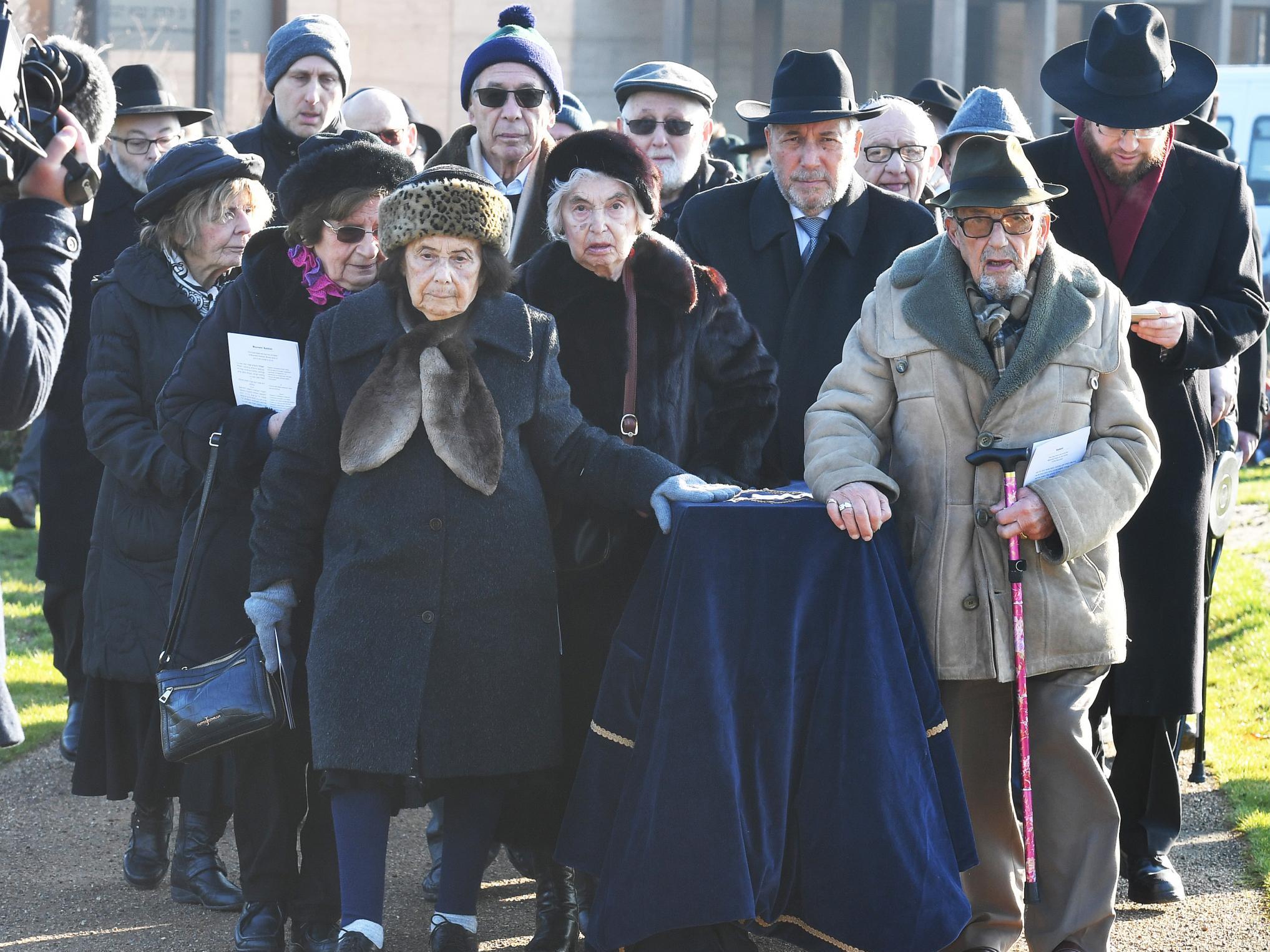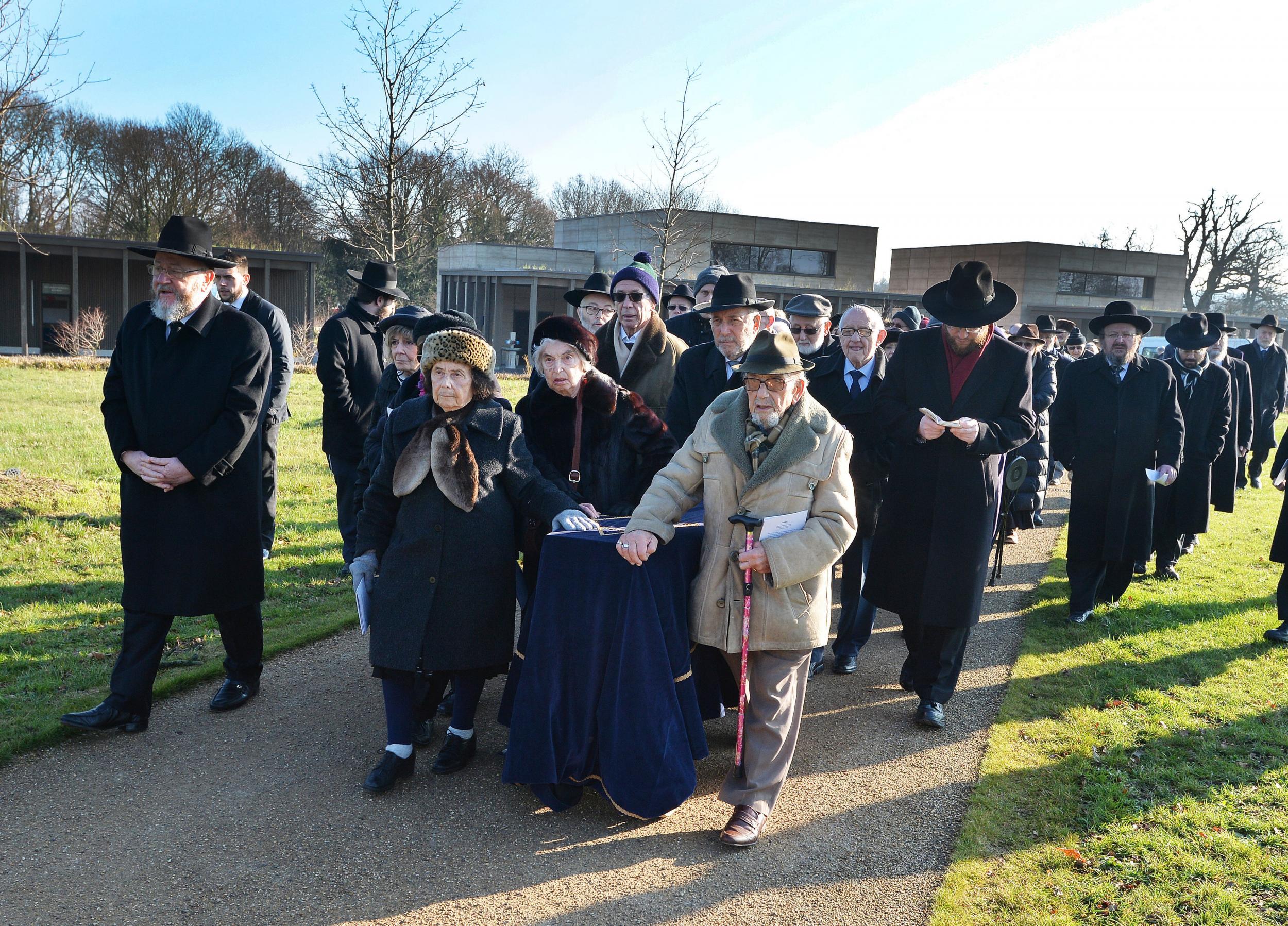'It felt as though a weight had been lifted': Unknown Auschwitz victims are finally laid to rest
Ceremony comes 77 years to the day since Nazi extermination plan was finalised, writes Darren Richman


Your support helps us to tell the story
From reproductive rights to climate change to Big Tech, The Independent is on the ground when the story is developing. Whether it's investigating the financials of Elon Musk's pro-Trump PAC or producing our latest documentary, 'The A Word', which shines a light on the American women fighting for reproductive rights, we know how important it is to parse out the facts from the messaging.
At such a critical moment in US history, we need reporters on the ground. Your donation allows us to keep sending journalists to speak to both sides of the story.
The Independent is trusted by Americans across the entire political spectrum. And unlike many other quality news outlets, we choose not to lock Americans out of our reporting and analysis with paywalls. We believe quality journalism should be available to everyone, paid for by those who can afford it.
Your support makes all the difference.The Jewish wedding ceremony ends with a bang, not a whimper. At the conclusion of the service, the groom breaks a glass by stomping on it with his right foot, a gesture that symbolises the destruction of the Temple in Jerusalem.
The origins of the custom have been debated for centuries (after all, “two Jews, three opinions”) but the most common belief is that the primary reason for the practice is that joy must always be tempered. What could be more Jewish than that?
There is an old joke about a survivor going to heaven and telling God a holocaust joke. God is unamused and the survivor replies, “Oh well, I guess you had to be there.” The assumption inherent, of course, is that He wasn’t. It’s a remarkable gag that combines decades of philosophical thought with the scepticism of the oppressed.
If we are the chosen people then He’s got a strange way of showing his affection. What could be more Jewish than that?
On Sunday 20 January 2019, 77 years to the day since the plan to exterminate all the Jews of Europe was formalised at the Wannsee Conference near Berlin, six unknown Auschwitz victims were laid to rest at a cemetery in Hertfordshire, a stark reminder that the Final Solution was anything but. The remains of five adults and one child were anonymously donated to the Imperial War Museum in 1997 and the funeral, entirely unprecedented, was attended by more than 1,200 mourners.
Survivors played a key role in proceedings and my own grandfather, Zigi Shipper, a man who turned 89 this week and claims only to have survived Auschwitz due to “pure luck”, was among those present. The UK’s chief rabbi, who officiated, hopes the site might become akin to the Tomb of the Unknown Soldier on the other side of the Atlantic.
It has been said that, “The death of one man is a tragedy, the death of millions is a statistic” and the figure of six million has always seemed somehow incomprehensible. I cannot remember a time before knowing about the Holocaust, such was the power of Grandpa Zigi in my formative years, but understanding it is something else entirely.
Zigi spends his “retirement” sharing his story in schools up and down the country in a clear, eloquent manner that is almost matter-of-fact in tone.

Most survivors are similar since there is no need for theatrics when dealing with such unimaginable horror. On Friday, however, when Zigi appeared on Radio 4’s Today programme to discuss this event, I detected something different in his voice.
When questioned, he said, “It was the first time I’ve ever had tears rolling down my cheeks talking about those things. I was thinking about my father.”
Zigi’s father was murdered, like the vast majority of his relatives. To this day, despite using every resource available in locations all over the world, he has no idea when or where this happened.
One of my grandfather’s very few regrets is that he has never been able to say the Mourner’s Kaddish, a prayer for the dead that is recited on the anniversary of the death of a relative. The six human beings buried in Bushey on Sunday were unknown in every sense.
The only two facts we know for certain is that they were Jewish and that that was seen as reason enough to condemn them to death. Zigi, speaking on the radio, was all too aware that they could have been anyone.
Rabbi Ephraim Mirvis’ sermon was a powerful reminder to confront all forms of racism and many in attendance were in tears as he directly addressed the six victims. “Hate speech can easily be translated into hate crime,” he said, a timely reminder of the dangers of prejudice at a precarious moment in history.
The survivors present helped carry the coffin containing the remains of the unknown victims and were the first to shovel the earth and begin filling the ground, the most cathartic moment of any Jewish funeral.
When Zigi first returned to Auschwitz in the 1990s, with his two daughters for company, he looked to the heavens as he held them in his arms and said, “Hitler did not succeed.” He’s the most upbeat person I’ve ever met having lived through the most horrifying ordeal.
At the conclusion of the ceremony at the United Synagogue's New Cemetery in Bushey, as hundreds of mourners made their way back to their cars, a strange thing occurred.
It felt as though a weight had been lifted and talk turned to other things as the cemetery drifted into the distance. Lunch, of course, and football and family and countless other things that make up everyday life. People began to laugh because, while joy must always be tempered, even in sadness there is humour. As we approached the car, we were thinking about life, not death. L’Chaim – to life.
What could be more Jewish than that?
Join our commenting forum
Join thought-provoking conversations, follow other Independent readers and see their replies
Comments